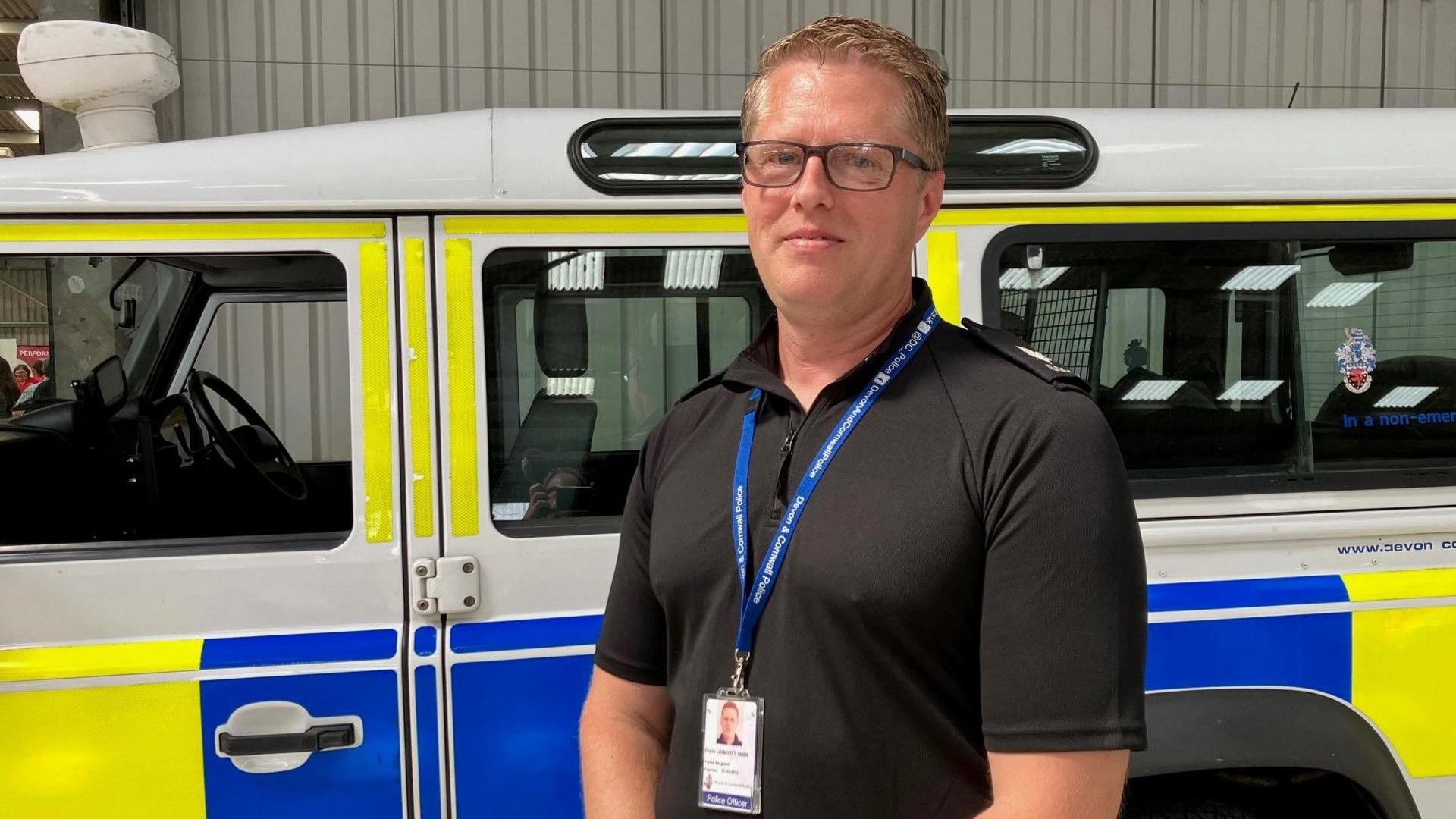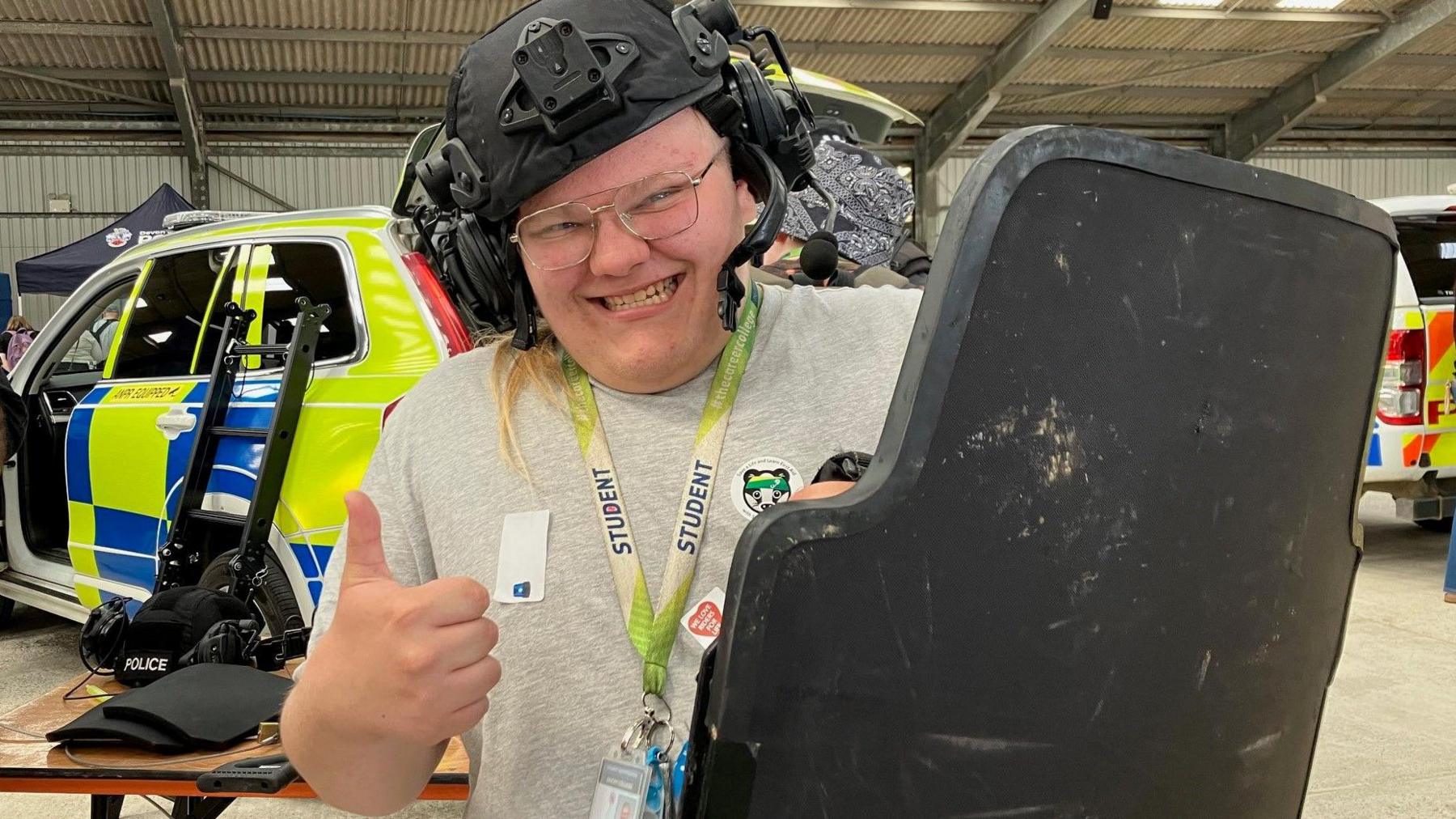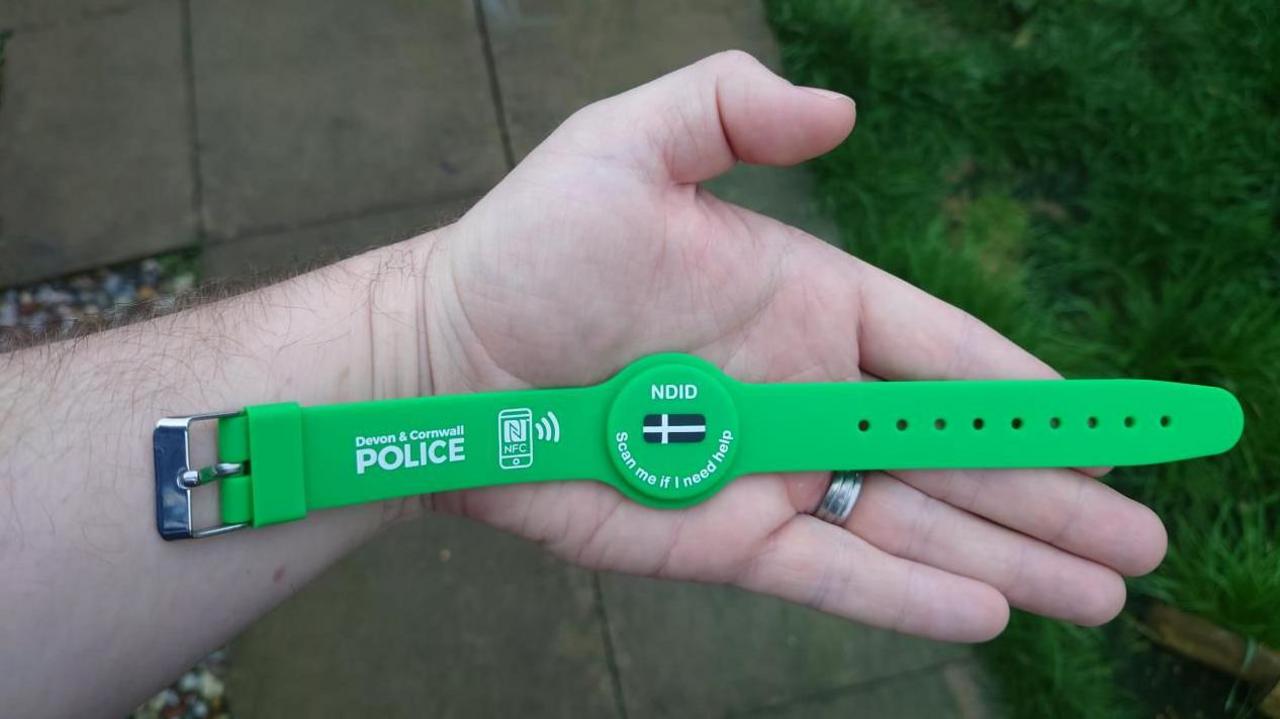Sergeant finds job 'well-suited' to being autistic

Sgt Linscott said the force's neurodiversity support network both helped him and enabled him to help others
- Published
An autistic police sergeant has said the condition helps him in his job.
Sgt Flo Linscott, 50, from Hayle, has worked for Devon and Cornwall Police for 26 years but was diagnosed as autistic just two years ago.
He is a police sergeant for the Cornwall Diverse Communities Team which he said was "a good job choice" for someone with the condition.
"I realise now that the work routine, the uniform, the internal code of conduct, following orders and approved practice - even the shift work - is well-suited for my condition," he said.
"I was diagnosed later in life although I always suspected the differences from growing up, my career and everything else.
"But what I found was really wonderful and helped me in my own job is that within the Devon and Cornwall Police we have a neurodiversity support network and that was one of the helping hands that gave me the confidence to then get myself assessed... and ultimately got my diagnosis," he added.
'Super anxious'
The National Autistic Society describes autism as a condition which influences how people experience and interact with the world and says more than one in 100 people in the UK are autistic.
Sgt Linscott said he was not surprised when he was diagnosed.
"Autistic people will recognise that there are elements where you will mask or you will present yourself in a certain way to perhaps hide some of the inner things that you're going through yourself," he said.
"So you could be super anxious about a certain thing that's about to happen, albeit once I've rehearsed how I'm going to conduct myself, it then becomes a bit more predictable.
"Then it becomes safe and then you can relax completely.
"But it doesn't always work out that way, which is why I then rely on my colleagues in the same network."
Sgt Linscott now peer supports newly-diagnosed police officers and those who think they may be neurodivergent.
"We share experiences and we share advice because even though there's a lot of commonality between autistic people, we're all so different," he explained.
"So if you've met one autistic person, you've met one autistic person.
"But because I have an understanding of my own neurodivergence, I can relate to theirs.
"I have helped a few officers back to work or helped them stay at work.
"As this is a two-way exchange, the whole process helps me too - I now know I am not the only one who perceives the world this way."
Force equality, diversity and human rights officer Teresa Berridge works alongside Sgt Linscott and said: "Being an autistic person... this enables him to put himself in the shoes of others with, perhaps, a greater desire to truly understand what that person's own experience is and how different situations may impact them.
"Sgt Linscott is a really well-known police officer in his local area and this is testament to his ability to engage and understand people, to listen and hear their concerns and actively seek out solutions to help them."
Follow BBC Cornwall on X, external, Facebook, external and Instagram, external. Send your story ideas to spotlight@bbc.co.uk, external.
Related topics
- Published6 July

- Published27 June
